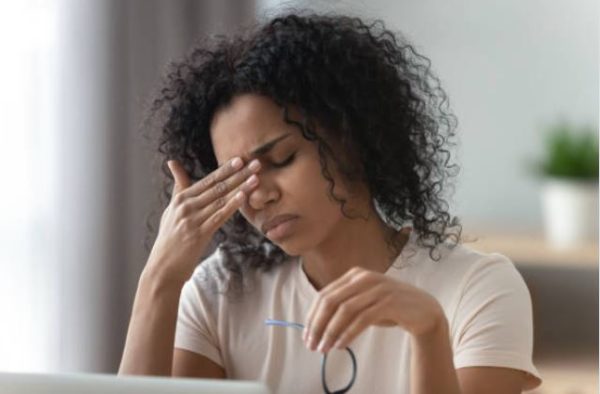Lifestyle
5 habits that are making your eyes weak

Despite being one of the most vital organs in the body, our eyes are frequently disregarded in our day-to-day activities.
Because of our dependence on screens and artificial lighting, modern lifestyles have brought about habits that, over time, may deteriorate and strain our vision.
Even though many of these behaviors seem harmless at first, if left unchecked, they might cause long-term vision problems.
Recognizing these standard procedures is the first step in safeguarding and maintaining the health of your eyes.
Here are 5 common habits that could be contributing to weakened eyesight and practical tips to help mitigate their effects:
1. Overuse of screen time
Digital eye strain, which manifests as symptoms like dryness, irritation, and impaired vision, can be brought on by extended screen time, whether it be from computers, televisions, smartphones, tablets, or other devices. Moreover, displays’ blue light can interfere with sleep cycles. The 20-20-20 rule states that you should take a 20-second break every 20 minutes and stare at anything 20 feet away in order to lessen strain. Furthermore, it has been demonstrated that prolonged use of screens or close work increases children’s myopia (the ability to see far away), but outside playtime is protective.
2. Not protecting eyes from UV rays
Ultraviolet (UV) rays from the sun can damage your eyes over time, increasing the risk of cataracts and macular degeneration. Sunglasses that block 100% of UV rays (both UVA and UVB) are essential for protecting your eyes. Insufficient UV protection Sunlight’s ultraviolet (UV) rays can harm your eyes over time, raising your risk of macular degeneration and cataracts. It is imperative that you wear sunglasses that completely filter UV radiation, including UVA and UVB, to save your eyes.
3. Ignoring eye pain symptoms
Common complaints such as headaches, chronic dry eyes, or eye tiredness may be early indicators of more serious eye problems. If these signs are ignored, more serious illnesses may develop. Consult an eye care expert for help if you have ongoing discomfort or changes in your vision so that you can take care of any issues before they get worse.
4. Self-medication
Frequently, we use prescription drugs for friends or family members instead of going to the eye doctor. Our local pharmacy occasionally provides us with “regular eye drops” to relieve irritation or discomfort. These eye drops frequently contain steroids. They are cheap, provide relief right away, but over time, they cause great harm. Therefore, make sure you consult your eye doctor before using eye drops. You can, however, use preservative free lubricating eye drops (artificial tears) without a consult, but please do consult your eye doctor if the irritation persists or worsens.
5. Uncontrolled blood sugar and blood pressure
Only a healthy body can support healthy eyes. High blood pressure and blood sugar levels can also have a negative impact on the eyes. Diabetics have an increased risk of developing cataracts, glaucoma, diabetic retinopathy, and eye infections. Maintaining strict blood pressure, blood sugar, and cholesterol control is essential for eye health.
6. Not wearing recommended glasses
To ensure ideal vision and identify early indicators of eye problems, routine eye exams are essential. The majority of people neglect these examinations, believing that their vision is good, not understanding that certain illnesses could not have symptoms at first. Furthermore, the issue may get worse if the prescription glasses are not worn. Thus, to detect such problems early, get your thorough eye exams at least every two years if you’re under forty, and every year after that.







